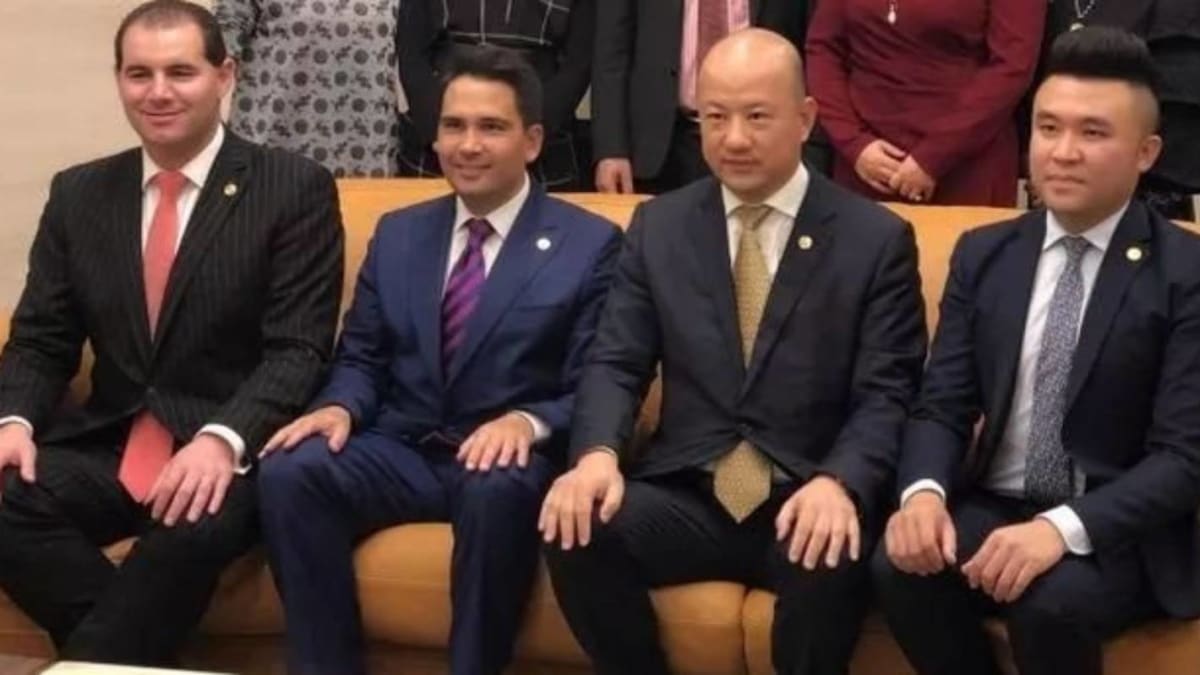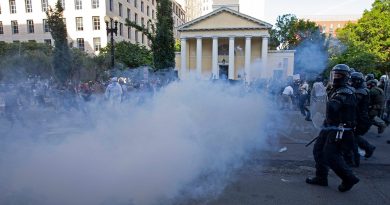‘They all lied, except for Jami-Lee’
Lawyers summarise the Crown’s case against former MP Jami-Lee Ross and Chinese donors alleged to have concealed big sums given to both Labour and National
A Crown prosecutor says all but one of the defendants in the political donations trial lied when confronted about concealing the sums given and the identity of a major donor to Labour and National.
“The only one who didn’t lie about his involvement was [former National MP Jami-Lee] Ross. He told the truth. He knew it was wrong and he did it anyway,” Paul Wicks QC said as he finished the Crown’s closing statement at the High Court at Auckland.
Earlier, he said Ross had scored an own goal over his own involvement in the fraud in 2018 in statements he made in conversations with his former leader Simon Bridges that he illicitly taped, in press conferences and in laying a formal complaint with Wellington police over donations fraud.
Ross claimed Bridges had known a $100,000 donation from another defendant, Yikun Zhang, had been split up into seven donations under $15,000 to conceal Zhang’s identity and avoid public disclosure. Ross’ allegations and police complaint instead, ultimately, led to the Serious Fraud Office charging Ross, Zhang, twins Colin and Joe Zheng and later three others connected to a donation to Labour. All seven defendants have pleaded not guilty to charges of obtaining by deception.
Wicks said the group had “manipulated and subverted the public process of political donations” and damaged transparency in the democratic process.
While Ross had suffered a serious mental health issue just before making the complaint in October 2018, Wicks said, by Ross’ own admission he had been cleared by his doctor to make decisions and felt good about his mental health. In evidence, Bridges had told the court Ross had been high-functioning around that time.
The Crown anticipated Ross’ lawyers would claim that because he had been mentally unstable before going public on the fraud claims, his admissions around his own actions could not be relied on.
But Wicks said: “Revenge on Mr Bridges, and his own mental health might have made him reckless for the consequences for himself. That’s why Mr Ross committed the own goal of admitting his own conduct. The part that was a lie was that Mr Bridges was aware that the donation had not been properly recorded.”
It would have been “terribly unlucky” for Ross if, in his mental distress, he had made up the claim that Yikun Zhang was the donor, just to “stitch-up” Bridges but then it turned out to be correct.
“It was either an extraordinary coincidence,” Wicks said, “or Mr Ross knew Yikun Zhang was the donor, and the Crown sees it as the latter.”

In evidence, Ross’ doctors had accepted it “was not uncommon to act irrationally, but [a patient] may say things that are true without thinking through all the consequences. The Crown says Mr Ross made statements that were indeed true in recorded conversations, media statements and his statement to the police.”
The SFO investigation uncovered a second $100,000 donation to National, from a year earlier in 2017, which it alleges came from Zhang and that Ross also helped facilitate in smaller amounts from “sham donors.”
The Crown pointed to Ross’ knowledge and involvement in the 2017 donation as having “strong similarities” to the 2018 donation.
Ross had implicated himself by acknowledging he had attended dinners, discussed donation declaration rules and been given lists of sham donors which he had passed on to his party officials.
Wicks’ closing statement over more than five hours on Monday outlined the Crown’s allegations and evidence against each of the seven defendants. “The evidence unequivocally proves the guilt of all concerned,” he told Justice Ian Gault, who is hearing the case alone.
Wicks said Zhang, an Auckland businessman and former chair of a Chinese cultural association that hosted party leaders, MPs and the Auckland Mayor at functions, had made a series of donations to the two largest political parties, “no doubt” to obtain influence with them.
On Zhang’s desire to keep his identity secret, Wicks said: “Perhaps it was to obtain a royal honour.” (Zhang was made MNZM in the 2018 Queen’s Birthday Honours for services to the Chinese community and China-NZ relations.) Or it was possible Zhang did not want the other political party to know when he had financially supported their opponent.
Colin Zheng, described by the Crown as Zhang’s “right-hand man” was also Zhang’s “lead assistant” in putting the fraudulent donations process into effect, the lawyer said.
The other five defendants all helped in that process, and all but Ross had lied when confronted about their involvement.
Wicks said Colin Zheng had explicitly arranged on WeChat messages presented in court for family and friends to make their bank accounts available to “transmit” the smaller, broken-up donation amounts to first Labour (by pretending to be the buyers of five paintings supposedly sold at auction at an association event on April 1 2017), and then to National in 2017 and 2018.
He had accessed money from his father’s account which had been used to fund part of one donation to National. The Crown says that account could have held funds ‘mingled’ with monies from Zhang.
To show the way Zhang and Zheng and others had attempted to cover Zhang’s identity as a donor, the Crown case also detailed a fundraiser for Labour during the 2017 general election campaign – attended by leader Jacinda Ardern – at which Zhang had paid $100,000 for a Chinese imperial robe, a Helen Clark portrait and wine.
The prosecution showed messages from Zheng and others arranging for that payment, too, to be broken up and paid to Labour. But in the end that did not go ahead as Labour found the amount did not qualify as a donation needing declaration because the original value of the robe was said to be around $300,000. Zhang effectively paid way less than market value, and the person who donated the garment was instead listed as a donor.
Wicks said Zheng was “part of the plan to prevent Yikun Zhang being reported as the donor” after that event.
For one of the donations to National, Zheng told those he wanted to pretend to have made the donation that the money was actually from the “association president” or “chairman”. And that was plainly referring to Zhang. But Zheng told the SFO in an interview that the money had come from him, Zheng. He simply used Zhang’s name to stop others, including his family and his ex wife, from knowing that he was able to give $100,000 to a political party.
Zheng was involved in all four of the donations raised in the case. “He was always acting for and at the direction of Mr Zhang and his protestations to the contrary are not true.”
Zheng and his twin brother Joe told the SFO that one sum that arrived from China of $108,000 from Yikun Zhang’s sister Shaona, had been a deposit for a home she wanted the brothers’ construction business to build for her at Weiti Bay. Because of a delay, they later used the money for the donation.
The Crown says there was no plan to build a house on the property that she owned, that Joe Zheng belatedly created a building contract a year later after Ross’ donations allegations were being investigated, and he and Shaona Zhang signed it then. The SFO also interviewed an architect said to have drawn up the plans and a surveyor who both said the work occurred well after the ‘deposit’ was received.
Joe Zheng, Wicks said, was a “knowing participant” in the scheme to hide Yikun Zhang’s identity and donation to Labour in 2017 and to National in 2018. He is also charged with lying to the SFO during his compulsory interview about the building contract and works for the Weiti Bay house.
Joe Zheng had created one list of names of the “sham donors” for the National Party. “He must have known the names on the list were not the true donors.”
While he could try to argue that he lacked intent, and was only doing what his brother asked him, that was no defence, Wicks said.
The remaining three defendants, alleged to be involved in the donation to Labour from the sale of the paintings in 2017, have name suppression.
Wicks said one, who had bought the paintings for the purpose of selling them to raise funds for Labour, “must have known that Yikun Zhang was going to purchase them”.
The Crown says that person and another of the defendants with name suppression had a meeting with Zhang and Colin Zheng on March 24, a week before the supposed silent auction which prosecutors allege did not occur, and arranged for the sale. “The attendees must have reached an understanding that Yikun Zhang would purchase the paintings at a specific price. That can be inferred from all the relevant evidence.”
And the defendant who bought the paintings swapped out two, replacing them with two from his own personal art collection, before they ended up hanging on Zhang’s home walls. “That could only plausibly have been at the request of Mr Zhang.”
The paintings were delivered from the original gallery to the defendant’s home, and are next seen in photos at a dinner at Zhang’s house of top Labour officials and that defendant.
The defendant did not point out to those Labour officials at the dinner that the paintings were those bought at the supposed auction.
Wicks said this defendant also engaged in a cover up in 2020, when Labour began reviewing its donations after the names of Zhang and the two Zhengs became public over the National Party case.
He misled Labour officials that Yikun Zhang had nothing to do with the 2017 artwork donations, had 13 phone calls with another defendant over two days which the Crown says “relate to cover-up activities” and drafted but did not send to Labour a letter in the names of the five sham donors seeking their money back and offering to return the art.
While this defendant might say he believed the association, not Zhang, had bought the paintings collectively and had individuals pay for them, documentary evidence possessed by him showed “blatant inconsistencies and lies.”
The remaining two defendants with name suppression also knew Yikun Zhang was the donor in both the paintings and the imperial robe fundraising but omitted to tell Labour.
One had deleted messaging applications before providing phones to the SFO and that person’s conduct helped prove intent, Wicks said. There was overwhelming evidence of the defendant’s involvement in what the SFO calls the fraudulent stratagem followed by those charged.
The other defendant had agreed for his name to go forward as a donor and recruited others to do the same. He had lied, the lawyer said and persuaded others to lie as well. The Crown alleges his conduct in 2020 when Labour began inquiring into the paintings donations, was indicative of what he knew in 2017.
He claimed to Labour that the painting bought in his name had gone with his mother to China, but the SFO discovered it hanging on the wall of Zhang’s home when it executed a search warrant.
“That was an absolute embellishment, and an untrue embellishment, in 2020,” Wicks said.
He told the court defence questioning during the trial of the Serious Fraud Office practices should be disregarded, and disputes over translations of words in messages could also be settled in the Crown’s favour or even if not, were not material to its case.
Defence lawyers begin their closing statements on Tuesday morning.





